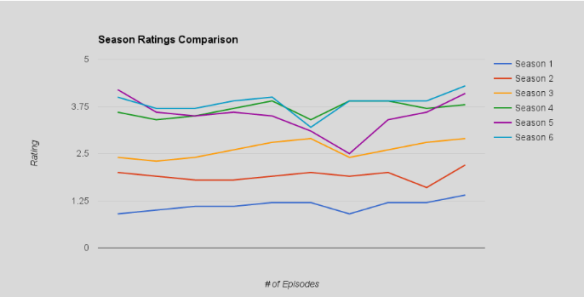“The Internet imposes no barriers to entry, no economies of scale and no limits of supply”(Clay Shirky).
There is an abundance of information literally flooding the net and media itself has changed from an organised stream of information created by legitimate providers, to a convergent mass of shared information created by illegitimate prosumers. Traditional media channels such as television and the newspaper lose their value when new media models grant users content for free.

Legacy media channels with their high cost of entry are being undercut by “The people formally known as audience” (Jay Rosen) as everyday amateurs are able to create and share content without cost and without risk of failure. So what this means for the global media landscape is that in an age where content is in surplus, value comes not from being a distributor who controls data access but from aggregators who control attention.
The best example I can give of this is Foxtel vs Netflix. Foxtel is a distributor, it plays shows like Game of Thrones periodically at certain times. The value of these shows is evaluated by the amount of people that watch them. Netflix is an aggregator, a digital cloud of shows that people are free to choose from. The value of these shows comes from being chosen.
Traditional forms of ratings measurement no longer have the capacity to reflect modern viewing habits. Just because no one is watching a show on television does not mean it is not being watched and as a result of this miss-reflection thousands of loyal fans almost lost what was in my opinion one of the best shows on television. Community was cancelled due to low ratings until Hulu picked it up as a web only series allowing the fandom to continue. It just so happened that the show had a following, but its followers were all binge watching pirates who liked to stream at their own convenience.

Game Of Thrones Season Ratings SeriesMonitor.com

Community Season Ratings SeriesMonitor.com
What allows this viewing practice to happen is something called The Long Tail Effect, where our culture and economy is increasingly shifting away from a focus on a relatively small number of mainstream products and markets toward a huge number of niches (LongTail.com).
In the traditional media paradigm the mass market always beats the niche but as Chris Anderson explains “What matters now is not where customers are or how many are seeking a particular title but only that some number of them exist anywhere”.
Think Amazon, it is not confined by the physical space of each individual store and therefore does not limit itself to only the bestselling books. The digital search and demand environment allows them to stretch their operations to the extremities of niche culture and still remain profitable. Now you have access to all the obscure books your heart desires at the click of a button and a short wait on delivery.
The benefit of this is that people get out the habit of simply following the mainstream, they freely peruse their own interests and movies such as Juno and Like Crazy get watched as well as massive blockbusters like The Avengers. The negative is that this sometimes prevents us from stumbling onto new discoverers. Have you ever watched a movie you never heard of simply because it was TV? Alternatively have you ever not known what to search for online and just ended up watching something you have already seen? The abundance of information leads to the scarcity of attention and when we are faced with choice we often stick to what we know, whereas the dictation of information can force us to take notice of things we wouldn’t of otherwise.
Jaron Lanier and Eli Pariser argue that when aggregators such as Google sort us into categories based on the niche interests we express, we run the risk of being given back to ourselves through the filtering of content. But at the same time it gives us opportunity to further ourselves beyond mainstream culture. It is important we expand our attention past our own little bubbles, after all there is so much to explore in cyberspace.


This is a really in depth blog post and breaks down all the key elements involved with the long tail effect! I really like how you mentioned both the positive aspects of it and the negative ones and the fact that we are sorted into specific identities and sometimes we get fed the same type of stuff and can’t explore anything else. But the question is; why do we continue to stay within these bubbles? It’s because its comfortable, but it’s not always what’s best for us. In another interview with Eli Pariser notes the dangers of having a newsfeed filled with pages that we’ve liked. We need a balance of the things we want to see and thing that we need to see. See more of the interview here: http://mashable.com/2011/06/03/filters-eli-pariser/#9nJW.lTV9EqG. To expand on your point “being given back to ourselves through the filtering of content,” what are the dangers of this? This article (http://www.huffingtonpost.co.uk/claire-woodcock/you-only-see-what-you-wan_b_11064280.html) explains that there is a danger that we become one-minded people who are only exposed to a certain viewpoint causing us to become trapped in thinking a certain way. This means that there is no exploration of views and thoughts where an individual can make their own decisions rather than an algorithm telling them what they should believe.
Thanks for the articles I will Check them out 🙂